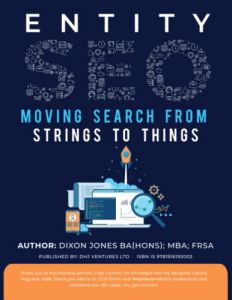Semantic search is changing the nature of content creation, says SEO expert Dixon Jones. Learn how Google’s Knowledge Graph and AI dramatically alter how people and machines must engage with information today. Search engines reward those who create value for users, Jones stresses, rather than those who trick people into clicking on low-value pages by loading irrelevant content with trending keywords. Learn to work with – not against – Google’s AI and Wikipedia’s editors: the humans and machines crafting the narratives for today’s search.
Google’s Knowledge Graph shifts marketer focus from keywords to user experiences.
“Semantic SEO” refers to how search engines index and retrieve content by conceptualizing it as a collection of “Entities” or “things,” rather than “words” or “strings.” Google’s sophisticated, massive “Knowledge Graph” helps it decipher relationships between concepts, and learn the difference between websites that churn out keywords and those that drive traffic with approaches based around Entities.
Digital marketers must optimize their organization’s online presence to enhance their position in Google’s Knowledge Graph using semantic SEO. Marketers can no longer rely on the practice of loading pages with keywords, but must instead focus on providing high-value user experiences, so Google’s AI ranks their content higher in its search results. Optimizing Google searches to better connect users with their desired information is vital.
For Google, a worthy user experience provides users with sufficient information, so they don’t have to leave your page and click elsewhere. Its Knowledge Graph tries to match users with their desired content by creating a “knowledge ...














Comment on this summary